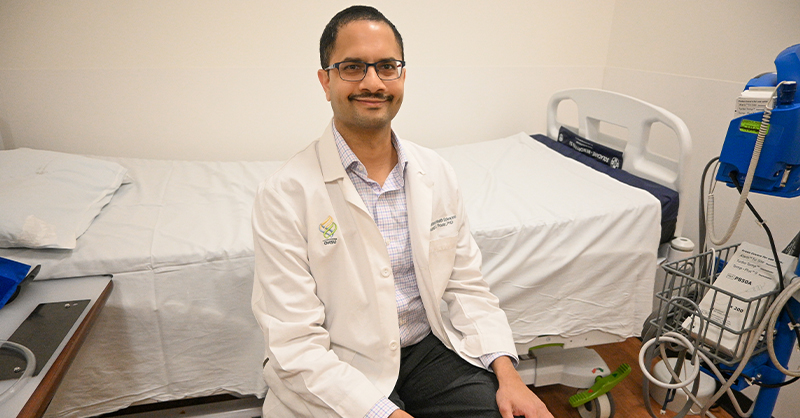
New research from Oregon Health & Science University (OHSU) has revealed a significant link between the circadian system in individuals with obstructive sleep apnea and the disruption of blood vessel function overnight. This finding may elucidate the heightened risk of nighttime heart attacks in those suffering from sleep apnea.
The study, published in the Journal of the American Heart Association, underscores the critical importance of managing vascular risk in individuals with this condition. “This study clearly shows nighttime impairment of blood vessel function driven by the body’s internal clock in people with untreated obstructive sleep apnea,” stated lead author Saurabh Thosar, Ph.D., a sleep scientist and associate professor at the Oregon Institute of Occupational Health Sciences at OHSU.
Understanding the Circadian Influence
For years, scientists have noted that cardiovascular events, such as heart attacks, typically occur in the early morning hours for the general population. However, for individuals with sleep apnea, these events are more prevalent during the night. The recent study suggests that this pattern may be linked to the impairment of vascular function across the night.
The research involved 12 participants with obstructive sleep apnea who stayed in a sleep laboratory at OHSU’s Marquam Hill campus for five days. Researchers meticulously controlled variables such as exercise, meals, and sleep while measuring vascular function throughout the 24-hour circadian cycle. Using non-invasive ultrasound, they monitored blood vessel function across 10 recurring sleep cycles of 5 hours and 20 minutes each.
Key Findings and Implications
The study found that the body’s natural circadian rhythm was disrupted in individuals with apnea, with the most significant impairment in blood vessel function occurring around 3 a.m. even during wakefulness. “This is the first study to show the circadian system impairs blood vessel function in people with obstructive sleep apnea,” noted Thosar.
The implications of these findings are profound. Thosar emphasized the potential benefits of optimizing medication timing to protect vascular health, potentially reducing cardiovascular risk for those with apnea. The standard treatment for sleep apnea, continuous positive airway pressure (CPAP), is not well-tolerated by all patients, highlighting the need for alternative strategies.
Exploring Treatment Alternatives
For patients who struggle with CPAP, improving overnight vascular function could involve taking antioxidants or other medications before bed. This approach could offer a viable alternative to enhance vascular health and mitigate heart risks associated with sleep apnea.
In addition to Thosar, the study’s co-authors include Nicole Bowles, Ph.D., Matthew Butler, Ph.D., Andrew McHill, Ph.D., Sean Rice, Ph.D., Jonathan Emens, M.D., and senior author Steven Shea, Ph.D., all affiliated with the Oregon Institute of Occupational Health Sciences at OHSU.
Funding and Future Directions
The study was supported by the National Heart, Lung, and Blood Institute, of the National Institutes of Health, under Award numbers R01HL125893, F32HL131308, and by the National Center for Advancing Translational Sciences, of the National Institutes of Health, under Award number UL1TR000128.
The content is solely the responsibility of the authors and does not necessarily represent the official views of the NIH or other funders.
Looking ahead, researchers plan to conduct further studies to explore the potential of timing medications to optimize vascular health in sleep apnea patients. Such studies could pave the way for new treatment protocols, offering hope for improved cardiovascular outcomes in this vulnerable population.






